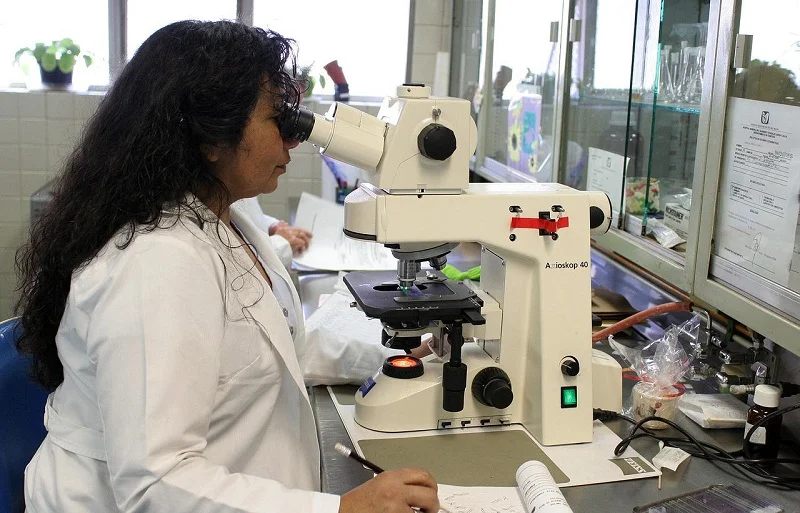Sorenson forensics: criminal paternity testing determines the paternal relationship between a man and a child. When criminal paternity testing is necessary, it means that there is reason to suspect the alleged father isn’t the biological parent of the child in question.
If you need to prove if someone is or isn’t your child for legal reasons, criminal paternity testing may be right for you. There are several situations where this type of test could come into play. For example, if you want to adopt a child but cannot because of laws regarding adoption and genetics;
Who Can Be Tested for Criminal Paternity?
Anyone who is alleged to be the father of a child can be tested for criminal paternity. You may be the putative (alleged) father of a child even if the mother does not claim you as the father. Paternity testing has nothing to do with who the mother says impregnated her. It is only important who the father is.
Paternity testing can be done at any age; however, it is rare to do paternity testing on a child under the age of 1 because it takes several weeks for paternity to show up in a child’s DNA. Also, paternity testing on a child under the age of 1 is more legally complicated than it is for older children.
Why is Criminal Paternity Testing Required?
Criminal paternity testing is needed when the alleged father of a child has been accused of statutory rape or incest. In these situations, if the alleged father is proven not to be the biological father of the child, the charges are dropped or dismissed. If the alleged father is proven to be the biological father of the child, then he will be charged with the crimes.
Criminal paternity testing can also be necessary when the child is being adopted and the adoption agency requires proof that the alleged father is not the biological father so that the adoption can progress. Criminal paternity testing is also needed when a child who has been adopted is being adopted again.
In these cases, an adoption agency will usually require proof that the biological father of the child is not dead before allowing the adoption to go through.
For More Blog posts, Click here.
How is Criminal Paternity Determined?
Criminal paternity testing is done by collecting samples of both the alleged father and the child in question. The samples can be collected through blood, saliva, or other DNA samples. The samples are then tested to determine if both the alleged father and the child share the same set of genetic markers that are found on the Y chromosome, mitochondria, and other places in the DNA.
If the genetic markers match, it is proven that the alleged father and the child are related as a result of having a common paternal gene. If the genetic markers are not a match, it is proven that the alleged father and the child are not related. A paternity test can be either an ABO or an STR test.
An ABO paternity test looks at the genes on the red blood cell while an STR test looks at the genes on the Y chromosome. Both DNA paternity tests are highly accurate and can be used to determine paternity with a high degree of certainty.
Legal Consequences of a Positive Paternity Test
If a paternity test has a positive result, it means that the alleged father is the biological father of the child. In this case, the alleged father will be required to pay child support (if the child is not receiving it already) and possibly take responsibility for health care for the child.
If a paternity test has a negative result, it means that the alleged father is not the biological father of the child. In this case, the alleged father will not have to pay child support and may be relieved of any future legal obligations toward the child.
Legal Consequences of a Negative Paternity Test
If a paternity test has a negative result, it means that no paternity test can be done. In this situation, the alleged father will be relieved of any child support and responsibility obligations towards the child. However, it is important to note that a negative paternity test does not mean that the alleged father is definitely not the biological father of the child.
It only means that the DNA paternity test could not detect any evidence of shared paternity. If the alleged father and the child are not related, then it is possible that the test did not detect a shared genetic marker. In these situations, a child support agency may require additional testing in order to determine paternity. This can include a different type of paternity test or DNA testing on the child and the alleged father.
Conclusion
Criminal paternity testing is needed when the alleged father of a child has been accused of statutory rape or incest. The paternity test can determine whether the alleged father is actually the biological father of the child. In these situations, if the alleged father is proven not to be the biological father of the child, the charges are dropped or dismissed. If the alleged father is proven to be the biological father of the child,
Then he will be charged with the crimes. Criminal paternity testing is also needed when the child is being adopted and the adoption agency requires proof that the alleged father is not the biological father so that the adoption can progress.
Finally, it is needed when a child who has been adopted is being adopted again and an adoption agency requires proof that the biological father of the child is not dead before allowing the adoption to go through.



